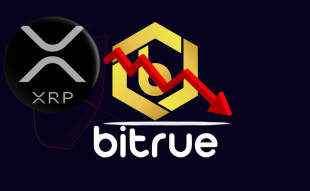Join Our Telegram channel to stay up to date on breaking news coverage
The United Kingdom Treasury is seeking public input on how it should tax decentralized finance (DeFi) activities such as staking and lending. The consultation is part of the UK government’s wider effort to modernize its tax policy to keep pace with technological advancements.
According to a report, the consultation is aimed at individuals, investors, and businesses involved in DeFi activities, including decentralized exchanges (DEXs), liquidity providers, yield farmers, and those who offer staking services.
The Treasury said that it is looking for input on the tax treatment of DeFi activities and how they should be classified for tax purposes. This includes whether staking and lending should be treated as taxable income or capital gains, how liquidity provision should be taxed, and whether different tax rules should be applied to different types of DeFi platforms.
The UK government has been working on a comprehensive review of its tax system to adapt to the fast-changing financial landscape. Last year, the Treasury published a call for evidence on cryptoassets and distributed ledger technology, seeking views on the regulatory approach to cryptocurrencies and the broader implications for the UK’s financial system.
The consultation on DeFi taxation is the latest in a series of measures that the UK government is taking to regulate and manage the emerging crypto sector. In January, the Treasury’s Financial Conduct Authority (FCA) banned the sale of crypto derivatives to retail investors, citing concerns about their complexity and potential harm to consumers.
While many in the crypto community have welcomed the UK government’s efforts to regulate the sector, others have criticized the moves, arguing that they are stifling innovation and growth in the industry.
The consultation on DeFi taxation is likely to generate a range of views from the crypto community, with some arguing that DeFi activities should not be subject to taxation, while others may suggest that a more nuanced approach is required.
Several jurisdictions, including the United States, have already issued guidance on the taxation of cryptocurrencies, but the rules surrounding DeFi activities are still evolving. This makes it essential for governments to work closely with the crypto industry to ensure that regulations are appropriately tailored to the unique characteristics of DeFi platforms.
In recent years, DeFi has emerged as one of the most dynamic and rapidly growing sectors in the crypto industry. These platforms use blockchain technology to offer a range of financial services, including trading, lending, and borrowing, without the need for intermediaries such as banks.
DeFi has the potential to revolutionize the traditional financial system by making financial services more accessible, transparent, and efficient. However, it also poses a range of challenges for regulators, including the need to ensure that platforms are secure, and users are protected from fraud and other risks.
The UK Treasury’s consultation on DeFi taxation is a recognition of the growing importance of this sector and the need to develop appropriate tax policies to support its growth. By engaging with the crypto community and other stakeholders, the UK government can ensure that its tax policies are informed by a broad range of perspectives and that they provide a stable and supportive regulatory framework for the DeFi industry.
In conclusion, the UK government’s decision to consult on the taxation of DeFi activities is a welcome step towards creating a more supportive regulatory environment for the sector. By working closely with the crypto industry and other stakeholders, the government can develop tax policies that encourage innovation and growth while protecting consumers and maintaining the integrity of the financial system.
Join Our Telegram channel to stay up to date on breaking news coverage


